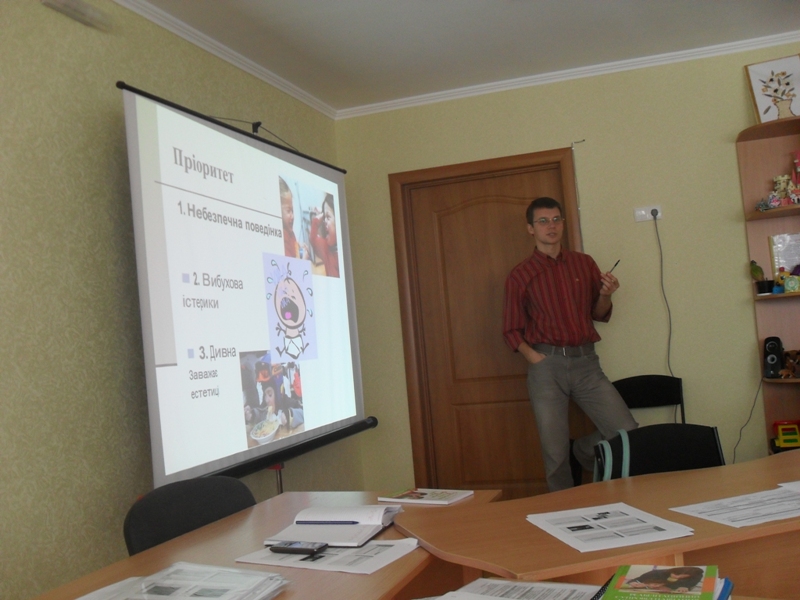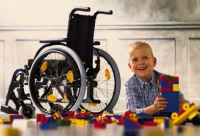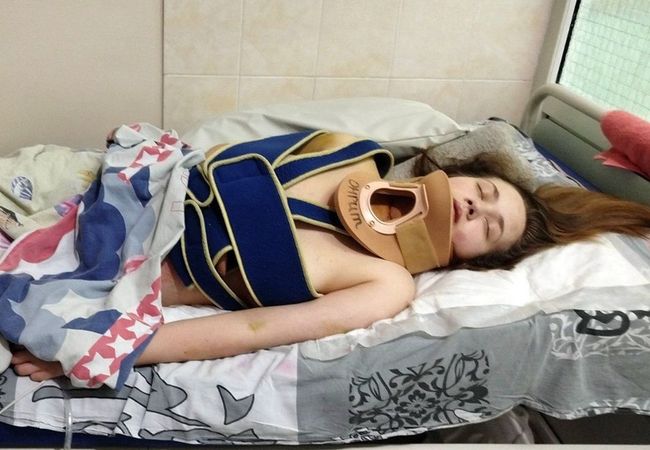The whole time we are helping special-needs children and adults at orphanages we face the lack of knowledge вАФ both our knowledge and the knowledge of people who work with these kids and adults. The first reason is that no one really trains such specialists in our country. In fact, their pupils were considered learning-disabled.
Whereas in New Zealand a nurse has to have bachelor's degree to work in a geriatric facility and in England it takes someone years of studying to play with вАЬspecialвАЭ little kids or feed and teach allegedly learning-disabled adults, in our country the most common way of learning for personnel is through trial and error.
Some everyday situations like kids hitting or biting themselves, hitting their head on something deliberately, throwing tantrums, running away or refusing to do anything, chewing on something left us wondering about what to do, but often we had no answers.
From time to time volunteers from England or adoptive parents from America, who already have their own special children or work with such people, tried to tell us how they acted in complicated situations, but not always it was possible to get through to every orphanage employee. Especially when we know that in the western countries the number of staff members working with special-needs people is many times larger.
After we discussed the staff training problem with Keshia, a volunteer from new Zealand who visited Zaporizhzhya region orphanages this summer, she found a specialist here in Ukraine who agreed to help us.

A week ago a three-day workshop took place in Velikiy Luh Zaporizhzhya orphanage, involving it's employees and also the employees of Kirovo and Kalinovka orphanages. It was formally called вАЬBehavioral treatment of children's aberrant behaviorвАЭ. We spent three days talking about the specific problems nurses, caregivers and crafts teachers face, about how they solve these problems and how they could be solved if every case was treated collectively.



It turned out that all the orphanages had common problems вАФ everywhere there are kids who bite, throw tantrums or even steal underwear or slippers from others. The instructor from Lviv did not give ready-made solutions, but told about his experience in working with вАЬspecialвАЭ kids' behavior. Nurses, caregivers and crafts instructors from different orphanages, in turned, divided into groups, chose the most troubled ones among their charges and made up mini-plans for solving there problems both as training exercises and for at their work places after returning there.



We are planning to have the next training session for the same group of people in a couple of months, where among other matters we will find out if they could put their theoretical knowledge into practice. We also hope to continue this training for other employees of the three orphanages for special-needs children. Of course, we are going to need you financial support. One such workshop for 20 people costs us almost 10 000 hrivnas, but these money is an investment into the lives and souls of tens of employees and hundreds of children for months and years to come. Great thanks to everyone who cares about our вАЬspecialвАЭ kids and adults!



